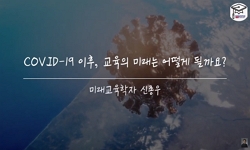Vaccination is considered to be the most effective measure for preventing the spread of coronavirus disease 2019 (COVID-19). Many countries, including of Korea, are focusing on achieving herd immunity with the goal of reaching a vaccination rate of 70...
http://chineseinput.net/에서 pinyin(병음)방식으로 중국어를 변환할 수 있습니다.
변환된 중국어를 복사하여 사용하시면 됩니다.
- 中文 을 입력하시려면 zhongwen을 입력하시고 space를누르시면됩니다.
- 北京 을 입력하시려면 beijing을 입력하시고 space를 누르시면 됩니다.
https://www.riss.kr/link?id=A107867774
-
저자
Jiyoung Oh ; Sohyun Kim ; Boyeong Ryu ; Minjoung Shin ; Bryan Inho Kim (Division of Risk Assessment, Korea Disease Control and Prevention Agency)
- 발행기관
- 학술지명
- 권호사항
-
발행연도
2021
-
작성언어
-
- 주제어
-
KDC
510
-
등재정보
SCOPUS,KCI등재,SCIE
-
자료형태
학술저널
-
수록면
1-4(4쪽)
- DOI식별코드
- 제공처
-
0
상세조회 -
0
다운로드
부가정보
다국어 초록 (Multilingual Abstract)
Vaccination is considered to be the most effective measure for preventing the spread of coronavirus disease 2019 (COVID-19). Many countries, including of Korea, are focusing on achieving herd immunity with the goal of reaching a vaccination rate of 70-80%. However, achieving herd immunity does not mean eradicating COVID-19, and the following challenges can occur in the process of achieving herd immunity. First, as the vaccination rate is likely to slow down over time, it is necessary to promote the benefits of vaccination through risk communication strategies and provide incentives for those who have been vaccinated. Second, a booster dose may be required depending on future studies on vaccine-induced immunity. Third, since variants capa-ble of evading immunity and with higher transmissibility can emerge, rapid contract tracing and regular community genomic surveillance could help mitigate the impact of new variants. When the impact of COVID-19 is controlled to the level of sea-sonal influenza, the current public health measures that have been strictly imposed on society since the beginning of the pan-demic will no longer be needed. The overall response strategy to COVID-19 will need to change accordingly, based on evalua-tions of the level of population immunity. These changes will include more efficient and targeted contact tracing and eased quarantine measures for vaccinated close contacts and travelers. Mask wearing and a minimum of social distancing will still be required in the journey towards the end of the pandemic. The COVID-19 pandemic will end, but the virus will not disappear.
목차 (Table of Contents)
- INTRODUCTION VACCINATION IS THE MOST EFFECTIVE WAY TO CONTROL COVID-19 HERD IMMUNITY DOES NOT INDICATE THAT COVID-19 WILL BE ERADICATED ACHIEVING HERD IMMUNITY: CHALLENGES AND THE WAY FORWARD CONCLUSION CONFLICT OF INTEREST FUNDING ACKNOWLEDGEMENTS AUTHOR CONTRIBUTIONS ORCID REFERENCES
- INTRODUCTION VACCINATION IS THE MOST EFFECTIVE WAY TO CONTROL COVID-19 HERD IMMUNITY DOES NOT INDICATE THAT COVID-19 WILL BE ERADICATED ACHIEVING HERD IMMUNITY: CHALLENGES AND THE WAY FORWARD CONCLUSION CONFLICT OF INTEREST FUNDING ACKNOWLEDGEMENTS AUTHOR CONTRIBUTIONS ORCID REFERENCES
동일학술지(권/호) 다른 논문
-
- 한국역학회
- Kyong Sil Park
- 2021
- SCOPUS,KCI등재,SCIE
-
- 한국역학회
- Su Yeon Kye
- 2021
- SCOPUS,KCI등재,SCIE
-
- 한국역학회
- Ju Hwan Kim
- 2021
- SCOPUS,KCI등재,SCIE
-
- 한국역학회
- Mounir Ould Setti
- 2021
- SCOPUS,KCI등재,SCIE







 KCI
KCI 스콜라
스콜라






